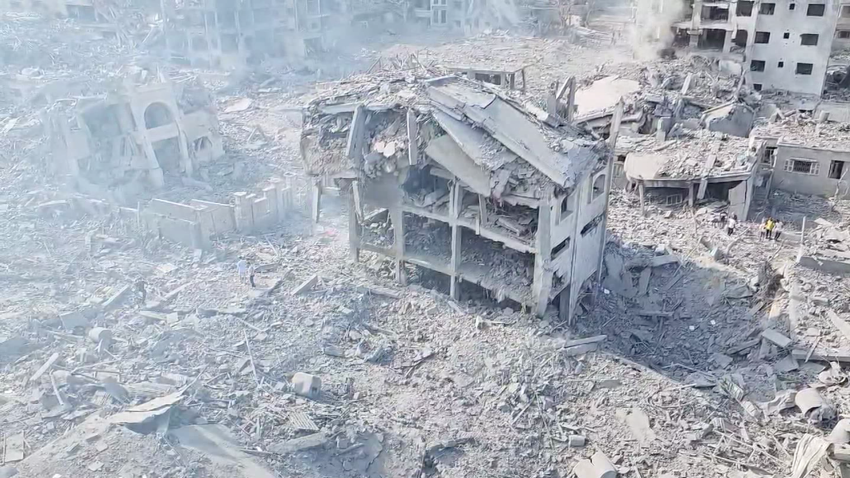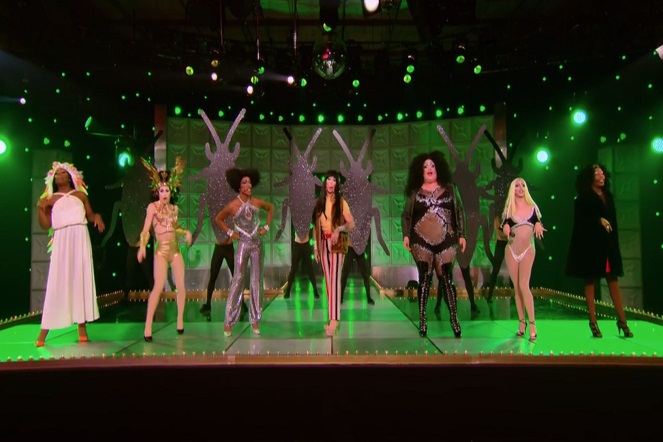The Complex Relationship Between Misogyny And Women's Safety: Insights From Mhairi Black

Table of Contents
Misogyny as a Root Cause of Violence Against Women
Defining Misogyny and its Manifestations
Misogyny, the ingrained prejudice against women, manifests in countless ways, ranging from subtle biases to overt acts of violence. It's a deeply embedded societal problem that fuels gender-based violence. It's not simply individual acts of hatred; it's a system that normalizes and excuses violence against women.
- Online Harassment: Cyberbullying, trolling, and online threats targeting women due to their gender.
- Street Harassment: Catcalling, unwanted sexual advances, stalking, and other forms of harassment in public spaces.
- Workplace Discrimination: Gender pay gaps, lack of opportunities for promotion, sexual harassment, and hostile work environments.
- Rape Culture: A societal environment that normalizes, justifies, or excuses sexual violence through the perpetuation of harmful myths and stereotypes.
These examples demonstrate how misogynistic attitudes create a climate where violence against women is not only possible but often considered acceptable or even expected.
Mhairi Black's Insights on the Pervasiveness of Misogyny
Mhairi Black, a former Member of Parliament, has been a vocal critic of misogyny and its impact on women's lives. Her experiences in politics, often recounted in interviews and public speeches, vividly illustrate the pervasive nature of misogyny. She has spoken extensively about the online abuse and harassment she faced, highlighting the chilling effect this has on women's participation in public life.
- Online Abuse: Black has openly discussed the intense online abuse she endured, which included death threats and graphic sexualized attacks.
- Political Commentary: Her outspoken criticism of misogyny within political systems has sparked important conversations about gender equality in power structures.
- Advocacy for Change: Black's consistent advocacy for policy changes to address gender-based violence demonstrates her commitment to improving women's safety.
Her candid accounts offer powerful insights into the daily realities faced by many women who experience misogyny and its severe consequences.
The Impact of Misogyny on Women's Safety
Physical and Sexual Violence
Misogyny fuels the alarmingly high rates of physical and sexual violence against women. It creates a culture where women are viewed as objects to be controlled or dominated, legitimizing violence as a means of asserting power.
- Statistics: Globally, an estimated 1 in 3 women experience physical or sexual violence, often by an intimate partner.
- Types of Violence: This encompasses a range of behaviors, from domestic abuse and rape to sexual assault and femicide.
- Long-term Effects: Survivors often experience long-lasting physical and psychological trauma, impacting their mental and physical health.
Psychological and Emotional Impact
Beyond the physical harm, misogyny inflicts significant psychological and emotional damage. The constant threat of violence, harassment, and discrimination contributes to a climate of fear and insecurity.
- Anxiety and Depression: The persistent threat of violence and harassment can lead to significant mental health challenges, including anxiety, depression, and PTSD.
- Self-Esteem Issues: Constant exposure to misogynistic attitudes and behaviors can severely damage a woman's self-esteem and confidence.
- Impact on Daily Life: Fear of violence can limit women's freedom of movement, social interactions, and overall quality of life.
The Impact on Public Spaces and Freedom of Movement
Misogyny restricts women's freedom and safety in public spaces. The constant fear of harassment and assault forces women to modify their behavior and limit their movements.
- Street Harassment: The pervasive nature of street harassment, including catcalling and unwanted sexual advances, creates an environment of fear and discomfort for women.
- Fear of Crime: Women disproportionately experience "fear of crime," impacting their ability to use public transportation, walk alone at night, or participate fully in public life.
- Adaptive Behaviors: Women often alter their routines, clothing choices, and movements to mitigate risks, highlighting the oppressive nature of misogyny.
Addressing the Complex Relationship and Improving Women's Safety
Challenging Misogynistic Attitudes and Behaviors
Combating misogyny requires a multi-pronged approach, focusing on education, awareness, and challenging societal norms.
- Bystander Intervention Training: Equipping individuals with the skills to safely intervene when witnessing harassment or violence.
- Media Representation: Promoting positive and diverse portrayals of women in media to counter harmful stereotypes.
- Gender Equality Education: Integrating gender equality education into schools and communities to challenge sexist attitudes and behaviors.
Improving Legislation and Law Enforcement
Strong legislation and effective law enforcement are crucial in addressing violence against women.
- Comprehensive Legislation: Laws that address domestic violence, sexual assault, and harassment, with provisions for protection and support for survivors.
- Police Training: Specialized training for law enforcement officials on how to effectively investigate and respond to gender-based violence.
- Judicial System Reform: Improvements to the judicial system to ensure fair and timely processing of cases involving violence against women.
Creating Safer Public Spaces
Designing safer public spaces requires addressing both physical and social aspects of safety for women.
- Improved Lighting and Surveillance: Enhanced lighting, security cameras, and other security measures in public areas to deter crime.
- Safe Public Transportation: Improved safety measures on public transport, including increased security and reporting mechanisms.
- Community Initiatives: Community-led initiatives that promote safety and address issues such as street harassment.
Conclusion
The link between misogyny and women's safety is undeniable. Misogyny fuels a culture of violence, fear, and insecurity, profoundly impacting women's lives. Mhairi Black's contributions to this conversation are invaluable, offering a powerful voice for change. By challenging misogynistic attitudes, improving legislation, and creating safer public spaces, we can work towards a future where all women feel safe and secure. Understanding the complex relationship between misogyny and women's safety is crucial for building safer communities. Learn more about this critical issue and take action today!

Featured Posts
-
 Beirut Under Fire Israeli Airstrike And Urgent Evacuation Order
Apr 29, 2025
Beirut Under Fire Israeli Airstrike And Urgent Evacuation Order
Apr 29, 2025 -
 Chinas Nuclear Power Ambitions 10 Reactor Approvals Signal Major Expansion
Apr 29, 2025
Chinas Nuclear Power Ambitions 10 Reactor Approvals Signal Major Expansion
Apr 29, 2025 -
 Conferinta Pw C Actualizari Si Modificari In Legislatia Fiscala Pentru 2025
Apr 29, 2025
Conferinta Pw C Actualizari Si Modificari In Legislatia Fiscala Pentru 2025
Apr 29, 2025 -
 Actors And Writers Strike The Complete Impact On Hollywood
Apr 29, 2025
Actors And Writers Strike The Complete Impact On Hollywood
Apr 29, 2025 -
 Toxic Chemical Residues From Ohio Derailment Remain In Buildings Months Later
Apr 29, 2025
Toxic Chemical Residues From Ohio Derailment Remain In Buildings Months Later
Apr 29, 2025
Latest Posts
-
 Amanda Owen Photos Of Her 9 Childrens Rural Life
Apr 30, 2025
Amanda Owen Photos Of Her 9 Childrens Rural Life
Apr 30, 2025 -
 The Challenges Of Growing Up On Our Yorkshire Farm Reuben Owens Perspective
Apr 30, 2025
The Challenges Of Growing Up On Our Yorkshire Farm Reuben Owens Perspective
Apr 30, 2025 -
 How To Watch Ru Pauls Drag Race Season 17 Episode 8 For Free No Cable
Apr 30, 2025
How To Watch Ru Pauls Drag Race Season 17 Episode 8 For Free No Cable
Apr 30, 2025 -
 Our Yorkshire Farm Reuben Owen Opens Up About His Childhood Challenges
Apr 30, 2025
Our Yorkshire Farm Reuben Owen Opens Up About His Childhood Challenges
Apr 30, 2025 -
 Trakiyski Khramove Kray Stara Zagora Kmett Na Khisarya Nastoyava Za Restavratsiya
Apr 30, 2025
Trakiyski Khramove Kray Stara Zagora Kmett Na Khisarya Nastoyava Za Restavratsiya
Apr 30, 2025
